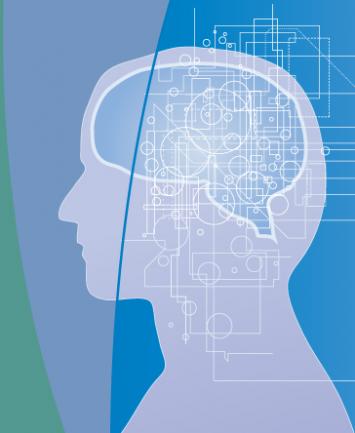
Cognitive science is the interdisciplinary study of the mind and deals with the nature of perception, motor organization, memory, language, thinking, consciousness, and learning and development. It investigates these topics from a number of methodological perspectives, including behavioral evidence for how these systems operate and formal, symbolic, and biological evidence on the computational and neural machinery that underlies them. Research on these topics comes centrally from several traditionally distinct fields: experimental psychology, computer science, linguistics, philosophy, and neuroscience. Other relevant disciplines – biology, anthropology, economics, decision sciences, and education – are also part of this burgeoning field.
The interdisciplinary concentration program at Georgetown aims to enable graduate students to pursue research in cognitive science by building an advisory committee of faculty members from multiple departments at the University, in order to pursue truly interdisciplinary work in this ground breaking field. Professors and researchers from the departments of linguistics, philosophy, neurology, psychology, computer science, Spanish and Portuguese, biology, and others, have agreed to work with students to develop individual programs of study that fit the interests of the student. Students will graduate with a Ph.D. from a home department with a Concentration in Cognitive Science.
The Concentration in Cognitive Science is supported by the Feldstein Veron Cognitive Science Fund and by the Graduate School of Arts and Sciences.
About Cognitive Science
For centuries philosophers and scientists of many stripes have sought to understand the relationship between the brain and mind, sometimes described as the hardest problem in science. How is it that the human brain, three pounds of matter, supports so many faculties that distinguish our species from all other life forms: consciousness, language, science, mathematics, morality, music, art, and more? We need good theories of the brain, the mind, and of the linking between them, the mind/brain.
On the brain side, one of the most striking developments of the last few decades has been the growth of neuroscience. The Society for Neuroscience was formed forty years ago and now has 43,000 members; its annual meetings attract 35,000 participants every November. Georgetown has participated in this development, with one of the earliest and strongest Ph.D. programs in the field. Indeed, the National Research Council in its latest survey of Ph.D. programs ranked our Interdisciplinary Program in Neuroscience (IPN) as the highest of Georgetown’s Ph.D. programs.
On the mind side, cognitive science is the interdisciplinary study of the mind and deals with the nature of perception, motor organization, memory, language, thinking, consciousness, and learning and development. It investigates these topics from a number of methodological perspectives, including behavioral evidence for how these systems operate and formal, symbolic, and biological evidence on the computational and neural machinery that underlies them. Research on these topics comes centrally from several traditionally distinct fields: experimental psychology, computer science, linguistics, philosophy, and neuroscience. Other relevant disciplines – biology, anthropology, economics, decision sciences, and education – are also part of this burgeoning field.
The Cognitive Science Society was formed in 1979, just after the Society for Neuroscience. In recent years the interdisciplinary cognitive sciences have grown in stature and prominence, both in the US and around the world. There is a renamed section of the National Academy of Sciences and a new National Research Council Board that cover these areas; virtually all major research universities offer graduate and postdoctoral programs in cognitive science and cognitive neuroscience, with variation in the character of the programs depending on the interdisciplinary strengths of each university.
